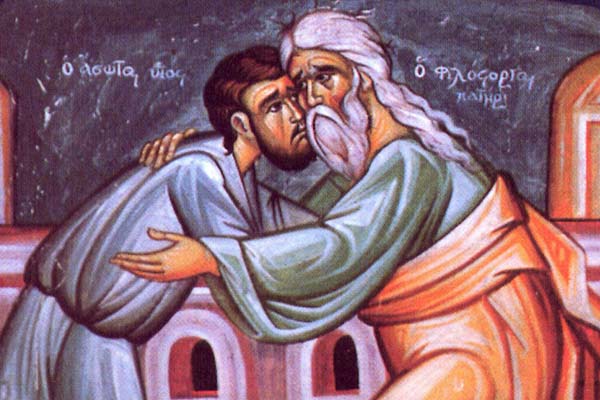The story of the Prodigal Son is often seen as merely a heartwarming tale of unconditional forgiveness, a narrative that comforts us with the image of a God ever-ready to forgive, embrace, and accept us, irrespective of our transgressions. However, this interpretation barely scratches the surface of its profound depth. When Jesus first shared this parable, it was intended as a jarring message that would unsettle the very foundations of his listeners’ understanding of faith and the divine. Those who heard it from Jesus were not merely moved; they were profoundly challenged, their preconceptions about righteousness, sin, and God’s nature radically upended. The narrative, particularly through the figure of the elder son and his transactional view of faith, served as a stark revelation. It illuminated the contrast between human notions of earned favor and the radical, unmerited grace of God, thereby inviting a deep reevaluation of everything they had ever known or learned about their faith and relationship with the divine.
The elder son, standing on the fringes of a joyous celebration, embodies this transactional faith. His heart isn’t moved by the return of the lost; instead, it’s weighed down by the cost of the celebration. His inheritance, he believes, is being squandered on the undeserving. It’s here, in his refusal to even enter the house, that we witness the profound disconnect in his understanding of relationship and family. To him, his brother is no longer a brother but “this son of yours,” and his father is not afforded the tender title of “father” but addressed with a detached “look.” This language reveals a heart that sees everything through the lens of gain and loss.
He’s spent his life believing that his worth and his place in the family are the results of his obedience and hard work. In his eyes, his relationship with his father is a transaction: loyalty and service in exchange for inheritance and favor. This mindset blinds him to the true nature of his father’s love, which is not earned by deeds but given freely and unconditionally.
This parable challenges us to examine our own faith. How often do we, like the elder son, approach God with a transactional mentality? We may find ourselves keeping score, believing that our obedience, our service, or our righteousness somehow obligates God to bless us, to answer our prayers in the ways we desire, or to spare us from suffering. But this is not the gospel. The good news turns this whole transactional system on its head, declaring that we are loved and accepted not because of what we’ve done but because of what Christ has done for us.
The elder son’s reaction to the feast is a tragic illustration of what happens when we lose sight of grace. The feast, representing the kingdom of God, is not about who deserves to be there based on their merit; it’s a celebration of grace, of being found, of being loved despite our wanderings and failings. The father’s plea to the elder son, “Everything I have is yours,” is not just a statement about inheritance; it’s an invitation to relationship, to recognize that the true value lies not in the estate but in the love and presence of the father himself.
As followers of Christ, we are called to move beyond a transactional faith. Our relationship with God is not a business deal but a love story, written not in the ink of our achievements but in the blood of Jesus. It’s a story where grace is the central theme, where we are invited to the feast not because we’ve earned our place but because we are loved.
Let us then approach God not with a list of transactions but with hearts open to His unconditional love. Let us see ourselves and our brothers and sisters not as competitors for God’s favor but as co-heirs with Christ, invited to celebrate in the abundance of God’s grace. May we step into the feast, not counting the cost but rejoicing in the lavish love of the Father, who calls us not servants but sons and daughters.


